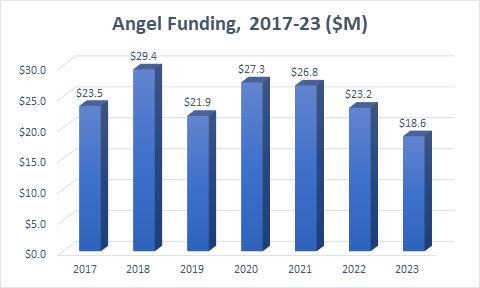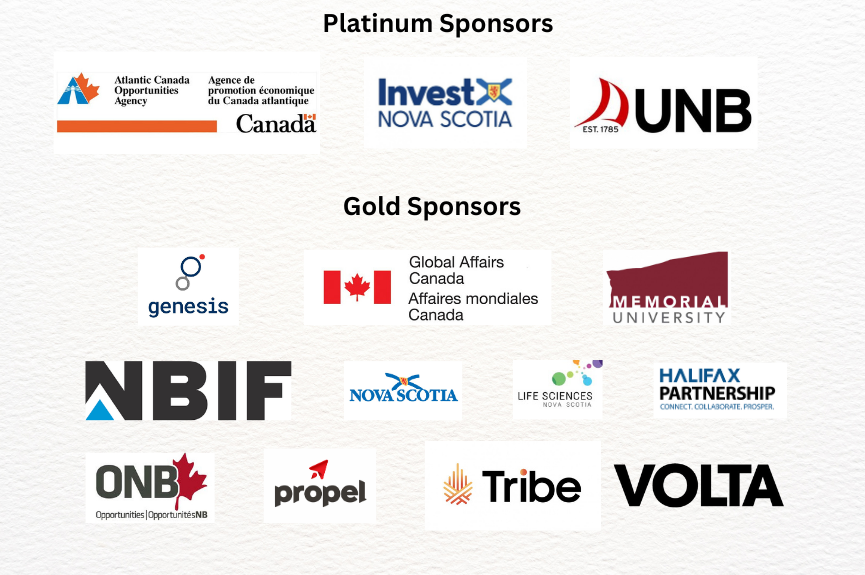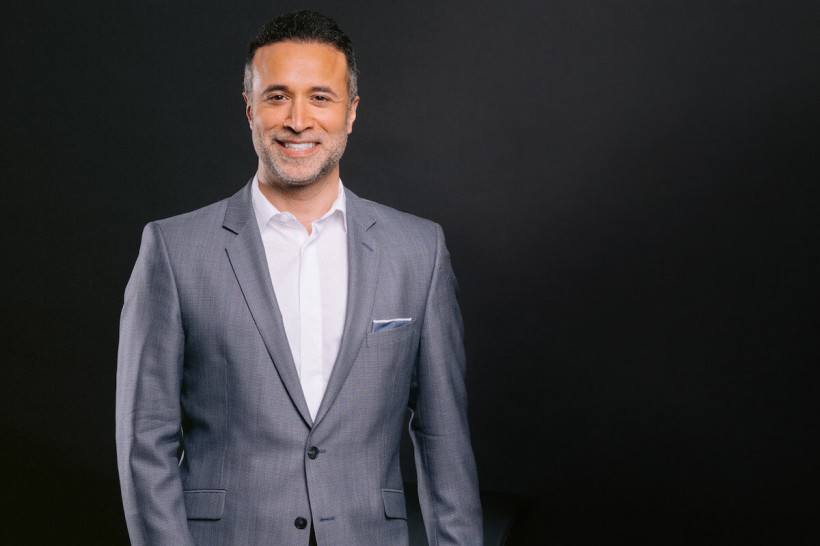Claudio Rojas, the CEO of NACO Canada, flew into Fredericton on Thursday to discuss solutions to the decline in angel funding in Atlantic Canada.
Rojas was attending the launch of Entrevestor’s 2023 Atlantic Canada Startup Data report at an event sponsored by the J. Herbert Smith Centre for Technology, Management and Entrepreneurship at University of New Brunswick and the New Brunswick Innovation Foundation.
His message was that this region needs a structure for angel investors to help channel more capital into growing companies. Given that there’s no regional body in place, there’s an opportunity to create a state-of-the-art funding body based on best practice.
“Atlantic Canada is at an inflection point with its angel community and has a significant opportunity,” said Rojas, whose organization works with angel networks across the country.
“Building on its recent success and its regional strength, we can achieve a modern angel infrastructure that is the envy of the country.”
The Startup Data report shows that Atlantic Canadian startups raised a respectable $265.8 million in equity funding in 2023, mainly through venture capital. The companies raised only raised $18.6 million in angel funding – the first time in at least six years that the angel funding figure has been below $20 million.

The launch of the report featured an active discussion about ways to improve the ecosystem, especially the funding of early-stage companies. There has not been a pan-regional angel network in Atlantic Canada since the First Angel Network closed its doors six years ago, and Rojas believes some form of structure is needed. Though NACO will not be a prime mover in establishing such a structure, it would support efforts by Atlantic Canadians to form such networks.
This structure could take various forms, but the goals would be:
- Create a hub at which the best startups could find local funding;
- Provide angels with the training and support they need to know they’re employing best practice when investing;
- And establish a structure that would allow a flow of capital in and out of the region to benefit both funders and entrepreneurs. Rojas envisions an organization that would allow local investment and be linked to regional, national or even international groups so startups could seek larger and/or more targeted investment pools as they grow.
Rojas said that investors need to be able to trust "key players" in various sectors.
The opportunity exists to nurture networks of investors that can be based on common interests. Maybe they want to invest in local companies, or in a certain sector, or back specific groups of founders, such as women or BIPOC entrepreneurs.
Once these groups are working together, they can work within the national structure offered by NACO. This relationship would allow individual angels to learn best practice, and scaling companies could seek funding from angel groups in other parts of the country.
As well as offering the most efficient mechanism for funding, this structure would help ensure equity in the development of new companies, said Rojas. He said unstructured angel financing tends to favour privilege because the founders that can attract capital tend to be those with the best connections.
“It needs to be hyper-local with regional and national scale,” said Rojas. He said that what’s needed is “local buy-in within a national structure. We have it but what we have to do is action it.”











